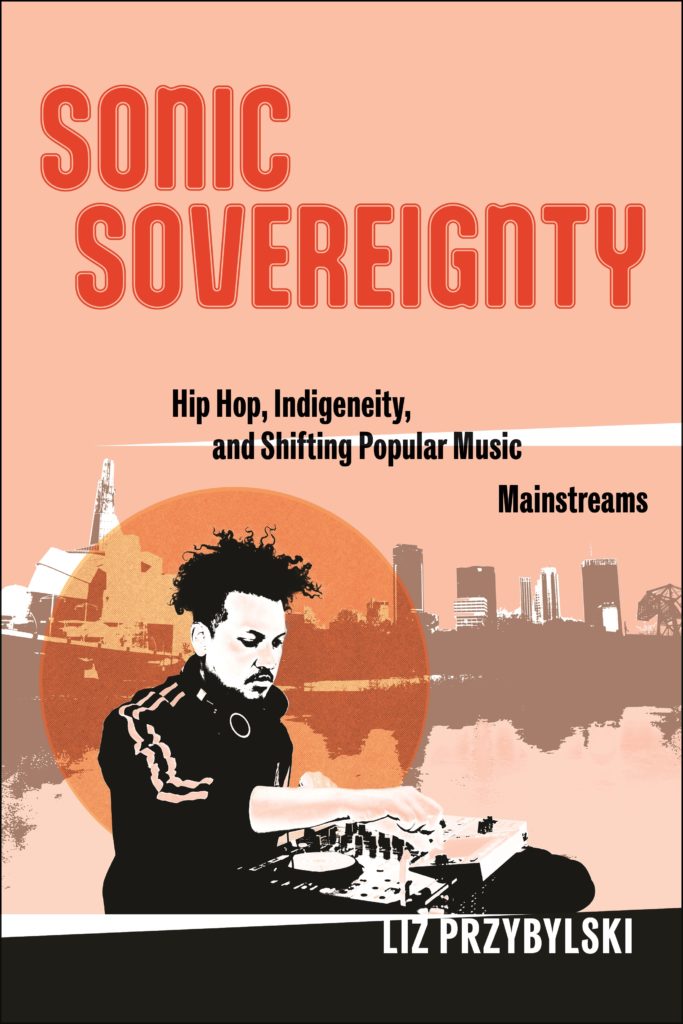
Advance Praise:
“Sonic Sovereignty extends our understanding of music across landscapes where belonging and self-determination are enacted daily. Through hybrid ethnographic and participatory research, Liz Przybylski examines the infrastructure of settler media terrains and, more importantly, Indigenous artists ruptures of it. Her examination of the online-offline divide, practices of distribution, and regulatory environments of broadcast systems are coupled with the power of Indigenous artists who encourage us to go beyond hearing. Through deft close readings of artists’ practices, she introduces us to the possibilities of relational listening.”
-Mishuana Goeman, author of Mark My Words: Native Women Mapping Our Nations
“Sonic Sovereignty excavates Indigenous rap’s role in moving us in decolonial directions. Liz Przybylski teases out the confluence of mainstream forces that (re)produce silences while spotlighting artists’ refusals that prompt new expressions of audibility. Sonic Sovereignty gifts us with insight into the intimacies of listening and the political possibility of learning to listen differently.”
–Imani Kai Johnson, author of Dark Matter in Breaking Cyphers: The Life of Africanist Aesthetics in Global Hip Hop
A BOOK ABOUT LISTENING
Sonic Sovereignty: Hip Hop, Indigeneity, and Shifting Popular Music Mainstreams
This book considers how contemporary Indigenous musicians champion self-determination through musical expression in Canada and the United States. The framework of “sonic sovereignty” connects self-definition, collective determination, and Indigenous land rematriation to the immediate and long-lasting effects of expressive culture. Liz Przybylski covers online and offline media spaces, following musicians and producers as they, and their music, circulate across broadcast and online networks.
Przybylski documents and reflects on shifts in both the music industry and political landscape over the course of a decade: as the ways in which people listen to, consume, and interact with popular music have radically changed, extensive public conversations have flourished around contemporary Indigenous culture, settler responsibility, Indigenous leadership, and decolonial futures.
Sonic Sovereignty encourages us to experiment with temporal possibilities of listening by detailing moments when a sample, lyric, or musical reference moves a listener out of normative time. Nonlinear storytelling practices from hip hop music and other North American Indigenous sonic practices inform these generative listenings. The musical readings presented in this book thus explore how musicians use tools to help listeners embrace rupture, and how out-of-time listening creates decolonial possibilities.

